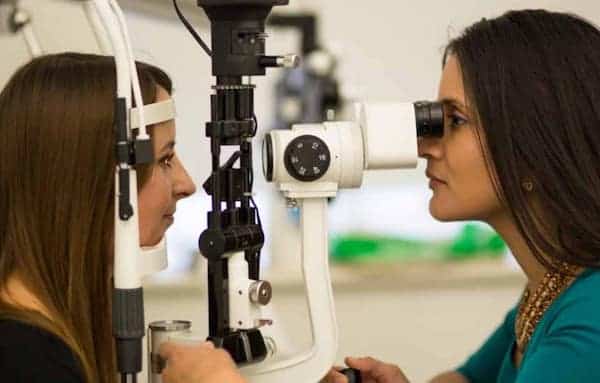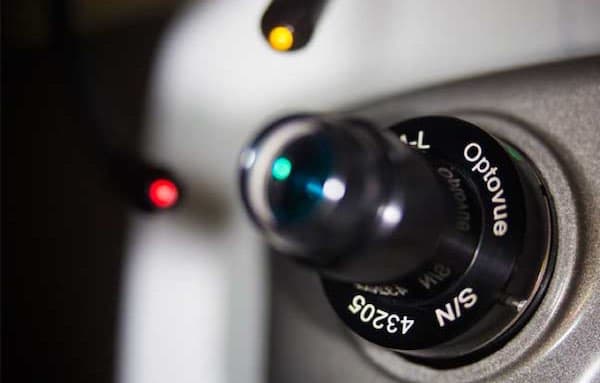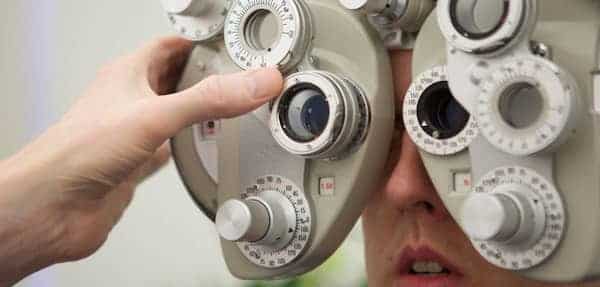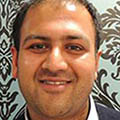Our Eye Surgery Process
Talk to our friendly staff
BOOK A CONSULTATION
3 steps to outstanding vision
1
Are you suitable?
Suitability is the most important step in the whole laser eye treatment and vision correction process.
Successful laser eye surgery is about selecting and screening for the right candidates. With well chosen eligible patients and an expert surgeon, both results and safety are extremely good. This is why we are very selective about who we treat, and take a quality over quantity approach to vision correction.
Making sure patients are highly suitable for laser surgery has allowed Focus to achieve a 100% 20/20 success rate for all common short-sighted prescriptions
There are a number of common reasons and eye conditions that can mean you are not suitable for laser eye surgery. If this is the case, alternative lens-based procedures, such as refractive lens exchange (RLE) or an implantable collamer lens (ICL) may still be an option for you.
We can quickly learn if you are broadly suitable for vision correction with a simple 10-minute telephone call. If there are no clear reasons why you may not be a good candidate for eye surgery, the next step would be an in-depth consultation with one of our expert clinicians.

Book a Consultation
To get a better idea of how we can help you, and also the different types of services we offer, book a consultation now.
Who is suitable for LASIK surgery?
Who is suitable for LASIK surgery?
If you have healthy eyes and have short-sight with or without some degree of astigmatism it is likely you are a good candidate for LASIK or PRK eye surgery. At Focus Clinic we can treat most myopic prescription up to -10.oo dioptres, and sometimes even higher depending on your corneal thickness. The WaveLight laser used at our clinic removes less tissue per dioptre than some other lasers, allowing to often treat even very high levels of short-sight.
Mild to moderate amounts of long-sightedness (hyperopia) can usually be corrected.
We can also help many patients who suffer from presbyopia (the need for reading glasses) with our LASIK Blended Vision procedure, or refractive lens exchange.
How old should you be?
Most laser eye surgery patients are aged between 20 and 65. The minimum age is 18 years old; if you started wearing glasses when you were very young, your prescription may be stable at 18 and so you may be suitable for treatment. More commonly, short-sighted prescriptions have not stabilised until the 20s. Once your prescription is stable, usually showing no change of 12 months, then you can consider surgery for a long-lasting result.
At the higher end, there is no age limit for laser treatment as long as there is no eye disease or problem. Some patients who are 60+ may be better helped by a lens-based procedure, such as refractive lens exchange, depending on the severity of the prescription and eye anatomy. Our surgeons can advise you on your options.
Possible contra-indications to LASIK
Severe prescriptions
Some extreme prescriptions are not suitable for laser eye surgery but may be correctable by lens implants, e.g ICL or RLE procedures.
Dry eyes
This is the most commonly seen side-effect from laser eye procedures. However, it is an avoidable complication for most patients and down to selecting the right people to have surgery, as well as pre-treating to improve any pre-existing dry eye. We may spend several months on the latter, preparing the patient for their LASIK or PRK.
At Focus Clinic we see less than 0.5% of patients for dryness in the eyes by 12 months after their procedure, and 0% by 2 years that is attributable to treatment
The majority of dry eye comes from excess evaporation of the tears and pre-operative remedies can help restore normal eye lubrication.
Keratoconus
Keratoconus occurs in around 1 in 2000 people in the UK and leads to corneal thinning and steepening. Such patients are not suitable for standard laser eye surgery. Treatments are available to prevent this condition worsening using a relatively new approach called collagen cross linking.
Some clinics are using cross-linking for all LASIK procedures, commonly called LASIK Extra. This is not necessary or even recommended and not offered at Focus Clinic.
Stability of the prescription
The prescription should be stable for 12 to 24 months before undergoing laser eye treatment.
Previous eye conditions
Factors that will be considered include cataracts or early lens opacities, glaucoma, previous herpes infections in the eye, diabetic eye disease, and previous eye surgery.
Immune disorders
Some problems of the immune system, such as rheumatoid arthritis, systemic lupus and other collagen vascular diseases, can prevent you from having laser eye surgery.
If we find a cause for why LASIK surgery or another refractive procedure is not right for you, we will advise you at your consultation.
Curious about LASIK?
Find out more about LASIK eye surgery.
Pros and cons of laser eye surgery
Despite the procedure being more than 25 years old, laser eye surgery is still regarded as a relatively new operation. The pros and cons of laser eye surgery can help a prospective patient decide if vision correction is right for them.
2
Your consultation
Your journey
One of the most important parts of your journey in to get rid of your glasses or contact lenses will occur when you visit a laser eye clinic for the first time. You will get a very good idea of the level of attention to detail the clinic provides and how comfortable you will feel having treatment in that particular clinic. Observe the level of care, thoughtfulness of the team and the attitude or comments of other patients present on that day.
At Focus, the laser eye surgery consultation is a chance not only to assess you thoroughly to see if you are a suitable candidate but also an opportunity for you to get to know some of the team, familiarise yourself with our facilities and most importantly feel welcome, safe and relaxed.

Before your consultation at our London clinic you will speak to one of our patient care co-ordinators who will run through a series of medical questions to make sure you are a possible candidate for correction. This is often an opportunity for us to answer any questions you may have about Focus or surgery for glasses or contact lenses in general, and we’re always happy to help. We may at this point provide a basic price quotation and then arrange a time for you to come and meet us.
We’ll send out some forms in the post which you should complete and bring along.

What to expect at your consultation
On the day of your consultation you’ll meet our clinic co-ordinator who will take your forms and your previous prescription details. You can then relax, grab a freshly brewed cappuccino or cold drink before being escorted by one of our technicians to the scanning room. Here we take precise measurements of your eyes – the results are analysed by our computer systems to provide an incredibly accurate map of each of your eyes.
On the day of your consultation you’ll meet our clinic co-ordinator who will take your forms and your previous prescription details. You can then relax, grab a freshly brewed cappuccino or cold drink before being escorted by one of our technicians to the scanning room. Here we take precise measurements of your eyes – the results are analysed by our computer systems to provide an incredibly accurate map of each of your eyes.
Book a FREE* Consultation
To get a better idea of how we can help you, and also the different types of services we offer, book a consultation now.
3
Your Surgery Day
Compared to your consultation, your treatment will feel very quick – we ensure all the hard work in assessment and scanning is of course carried out and checked thoroughly before you have surgery.
It is rather like making a movie, where the final result is fairly short, but built upon possibly several years of work. Laser eye surgery is the same, as it’s the work that has preceded the surgery day that is most important.

What happens on your surgery day?
- 1Firstly you will be greeted by your patient care co-ordinator and will probably recognise many of the team from your consultation. You will then meet your surgeon again for a review and have the opportunity to ask any questions you may still have. The surgeon will carry out some final checks, review the latest scans taken that day, re-measure your prescription to ensure it is absolutely correct. Your doctor will explain what to expect immediately after the procedure.
- 2You will be guided towards the laser suite and met by one of our technicians. Here we go over what drops you will use post surgery and of course the ‘do’s and don’ts after your treatment. For example – no swimming for a month, making sure you wear eye shields for a week during your sleep, and so on. All of this is written down for you to take home. Our aftercare program ensures you are regularly monitored during the first year.
- 3You are then prepared for surgery and taken into the laser suite where you lie on a comfortable flat bed. We administer some local anaesthetic to the eyes so you don’t feel anything and surgery takes only nine minutes in total. Your surgeon will be speaking to you throughout the procedure and it is all quite comfortable – people often say that a visit to the dentist is far worse!
- 4After the treatment is finished, we take you to our recovery room where you can lie down, relax, have some tea or coffee and a snack, and rest for a while. When you’re ready, the team will let you return home and rest.
Want to read more?
Visit our guides page for more useful information.
What are the short- and long- term laser eye surgery effects
With any surgical procedure, including laser eye surgery, it’s important to address a number of principal issues and questions up front.














